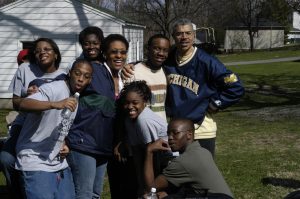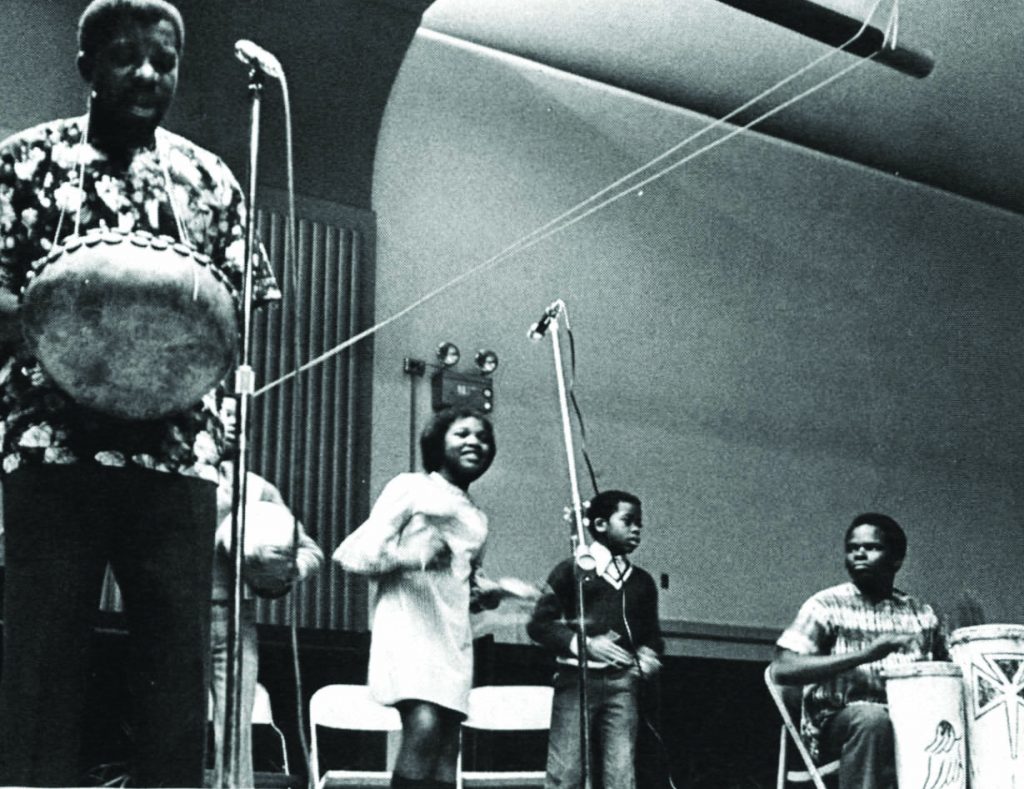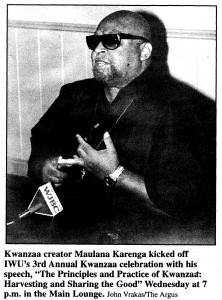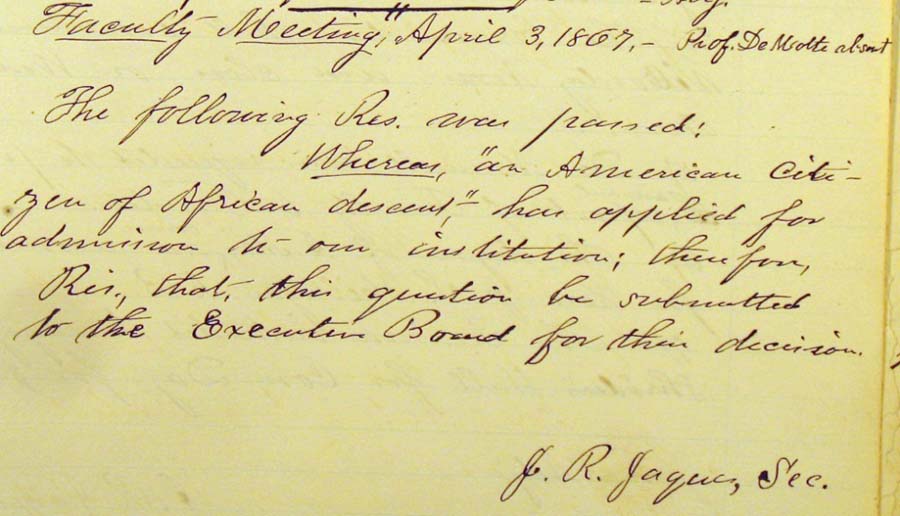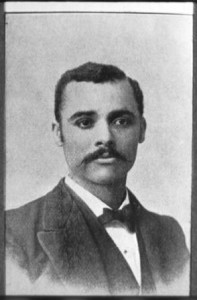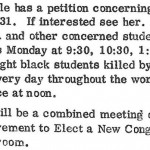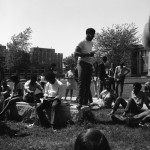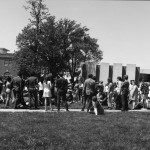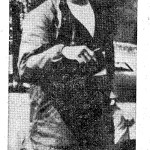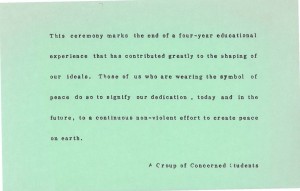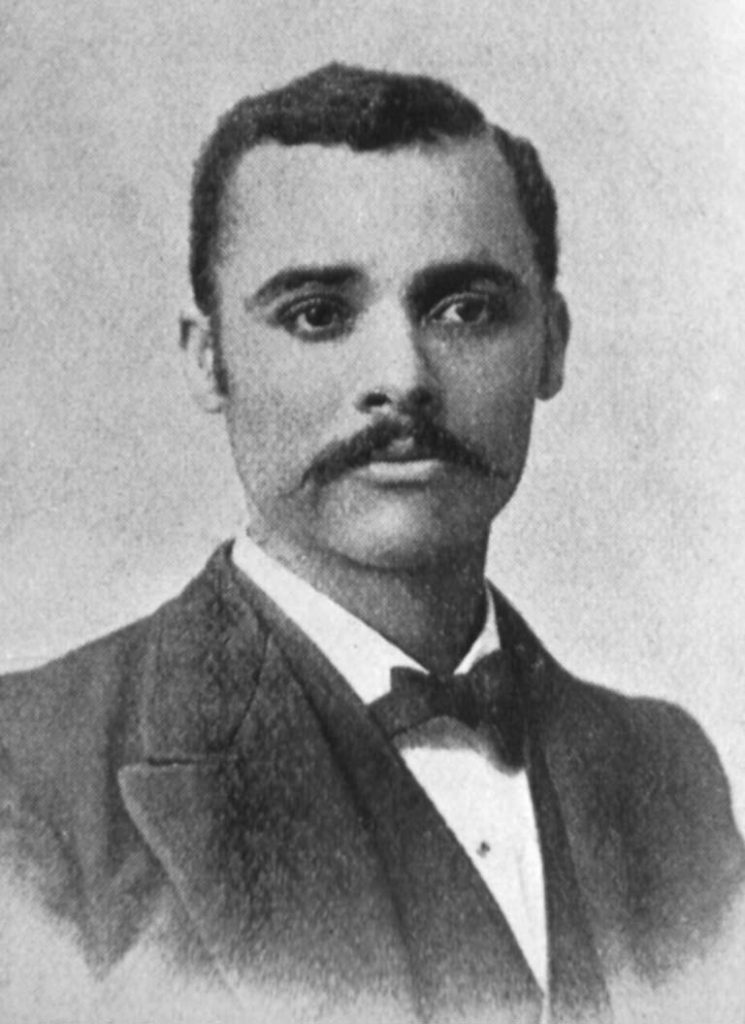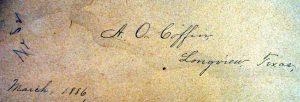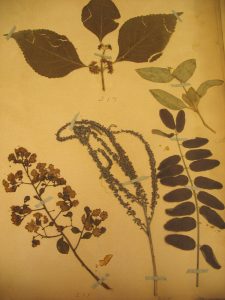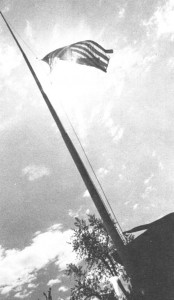 In the early days of May 1970, Illinois Wesleyan University joined more than 1,250 colleges in protesting the shootings at Kent State and Jackson State. In coordination with the May 4 Visitor’s Center, today the archives is remembering four students who died at Kent State University and looking back at the effects that these killings had on students at IWU.
In the early days of May 1970, Illinois Wesleyan University joined more than 1,250 colleges in protesting the shootings at Kent State and Jackson State. In coordination with the May 4 Visitor’s Center, today the archives is remembering four students who died at Kent State University and looking back at the effects that these killings had on students at IWU.
Below is a timeline of student activities and images drawn from the collections in IWU’s archives. If you have memories, documents, or photos of your own to share, feel free to comment but use the #May4Matters so that IWU’s recollections will join others who are commemorating this day.
“The Kent State killings set off a planned program of protest and community education unlike anything previously seen at Wesleyan. It brought together an unlikely coalition of ex-Senate officers, freshman activists, moderates, radicals, tired seniors and enthusiastic underclassmen.” — Kathy Larey Lewton. IWU 70, in the 1971 Wesleyana, pp 6-8)
The events of May 5-8 were reported on in the Friday, May 8 issue of our weekly student newspaper The Argus. The links for each day in the timeline below lead to the pages in that issue containing the stories mentioned.
Tuesday, May 5: 11:40AM The flag was lowered to half mast “in mourning of the four students killed at Kent State University and those who have died in Southeast Asia.” Following a 3:30PM meeting with 200 students attending, “The consensus was that the goals should be campus and community education, rather than alienation.”
Wednesday, May 6: Memorial services led by Chaplain William White. “Students scattered in the audience then read ‘some words for reflection in a time of. crisis.'”
Thursday May 7: President Robert Eckley cancels classes “to permit those who wish to participate in the activities planned by the Action Committee for Peace.” The decision followed a vote by Student Senate Wednesday calling for classes to be recessed all day Friday to acknowledge the incident at Kent State and the expanded Southeast Asian war.
Friday, May 8: The Action Committee for Peace (ACP) announces organizes a group assembly on the Quad at 3:45PM for a march to downtown Bloomington. 7:00PM rally with faculty and students speaking on campus.
The May 8th Argus also includes a range of feelings among students, such as those expressed in a Letter to the Editor shows that some found the responses at IWU disrespectful:
The tragedy of Kent State should not be blown out of proportion by a small minority of dissenters who find it to their advantage to martyr four violent demonstrators as heroes of their cause. – Richard Reinert and 64 other students, May 8 Argus, p. 2
Another student used artistic expression:


The killings at Jackson State University in Mississippi received less coverage in the Argus but one photograph of a class walkout appears on May 22, p. 7. Other images are in the gallery below.
“…the whole issue of what kind of free speech students could have, and what kind of political activity and political involvement or political activism students [should] have, I would argue, was basically redefined by that era here at Wesleyan.” — former ACP member Mark Sheldon, Class of 1970, oral history interview, August 2012.
Friday, May 22: Honors Day Convocation, Ron Klipp wore an American flag upside down (universal distress symbol) upside down, walked in last and started an uproar.
Tuesday, May 26: “Seniors received a ballot Tuesday concerning whether or not Commencement should be held.”
Wednesday, May 27: “They suggested a senior caucus be held Wednesday afternoon to decide on a third alternative for a possible new ballot.” (photographs below)
Ultimately, Commencement takes place as planned on June 7 with divisions over the controversies expressed in word, deed and dress. (see photograph below and more in the 1971 Wesleyana)
Below is a gallery of images selected from the photographic negatives in the University Archives:
-
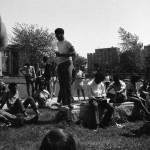
-
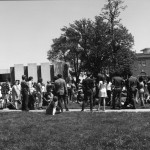
-
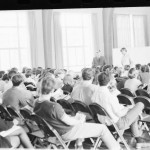
-
Senior caucus on whether or not to hold Commencement May 27, 1970
-
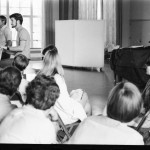
-
Senior caucus meeting chaired by Roy Hankins (in beard, facing audience)
-
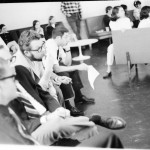
-
Senior caucus
-
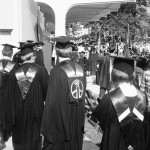
-
Fist-and-Dove symbol worn by Mark Sheldon in this picture and some members of the Class of 1970

